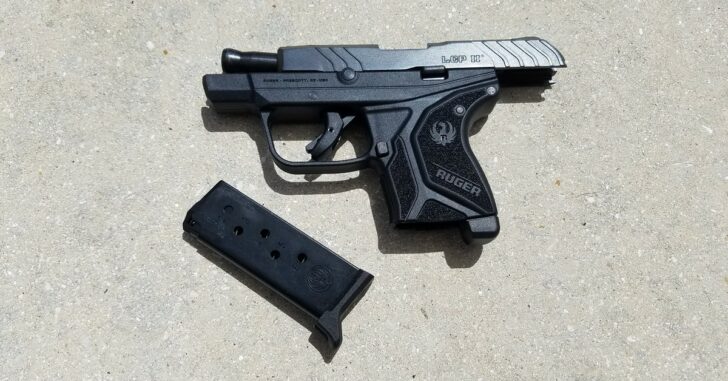I’ll never completely wrap my head around it. There’s a class of Americans that are treated as second class citizens for the rest of their lives despite the fact many of them never hurt a hair on anyone’s head. Basic rights are taken away and they are extremely expensive to regain. Permanent black marks trail the person as he or she applies for any job. The laundry list goes on.
They call it the ‘Department of Corrections’ and our prisons are usually named ‘Correctional Facilities’. The idea is that a person can be rehabilitated so as to be a productive member of society. Not every felon is a violent, bloodthirsty pirate. In fact, in quite a lot of cases, the person serving time may have never committed any violent act that would have resulted in loss of life, property, or even societal well-being.
And, in some cases, ex-felons have gone on to defend and save the lives of other people.
There is this great assumption that society views felons as “once a felon, always a felon.”
That doesn’t give a lot of room for rehabilitation — if that’s the point of putting people behind bars.
In this article, we’ll discuss ways that a former felon can get his gun rights restored. This article, obviously, is not legal advice but is just a broad overview of the different angles that non-violent felons can go about pursuing their gun rights.
I’ll give a few prefaces:
The legal system is a combination of money, influence, and immense understanding of the law. All three will be necessary to make a felony offense get expunged. I didn’t make the legal system. You’re going to need to hire an attorney unless you have a near flawless understanding of your state’s law, case precedent, and the types of legal terminology that most people just can’t be bothered to learn.
After all, defending yourself in your home is a natural right. Why not have the proper equipment for the job?
#1. Factors That Can Help Your Attorney Make The Case
Before you get your hopes up, there’s going to be several factors that can aid or detract from your pursuit. To be perfectly honest, it’s not very common for felons to have their gun rights restored. The process is intricate and requires a lot of fine legal maneuvering.
Factors that can go in your favor:
- The type of felony
- State versus Federal
Breaking state law is different than breaking federal law. They both carry hefty consequences but it’s a very steep uphill battle to get courts to overlook federal charges. That’s not to say it’s easy for courts to overlook state felonies — because that’s not the case — it’s just much easier for them to do that than to overlook federal cases.
- Non-violent versus Violent
You’re going to need to consult with legal counsel before proceeding with this process anyhow. However, if you were convicted of a violent felony offense, I wouldn’t get my hopes up about how that plays out. The only factors that can really aid you in that is if an incredible amount of time has passed since that violent felony and you have demonstrated above-and-beyond level of civic responsibility and have no other charges working against you in that time.
- Classification of the felony
Did the prosecutor just wake up on the wrong side of the bed the day he or she tried your case and decide to move what could otherwise be a misdemeanor into a felony class? If you consult with good legal counsel, they’ll take a look at whether or not the charges against you were justified in consideration of the case itself. That can help you get your record expunged. The lesser the class of felony, the more likely an attorney can work that angle.
- Record of contribution to the community
If you can demonstrate that you not only learned from your prior conviction but went on to become a beloved and influential member of your community, this can work in your favor. Letters from non-profit organizations you helped, town or city municipal authorities can all help develop your portfolio of reasons why the judge should consider your case.
- Letters of recommendation from law enforcement
This can be the strongest factor leading to the restoration of your gun rights. If law enforcement, a judge presiding over your case, and other people directly involved can vouch for your otherwise good record of service, that’s good proverbial ammunition for making the case.
- The length of time
How long since the conviction?
A big consideration in a lot of cases where a felony offense is expunged from a person’s record involve demonstrating a considerable length of time since the offense and the time a person approaches the court to ask for a felony offense to be expunged. State law can dictate the minimum amount of time that needs to pass before this happens.
You have to consider all previous factors I mentioned prior to this one. They all play in together to make your case more iron-clad.
In conclusion, there’s going to be two major hurdles a felon will have to go through to get his gun rights restored:
- The felony usually needs to be expunged.
- The courts have to restore the ex-felon’s rights after the felony is expunged.
In order to learn more about that process, you need to consult with an attorney. It is possible. It will also require a lot of work on your end.

